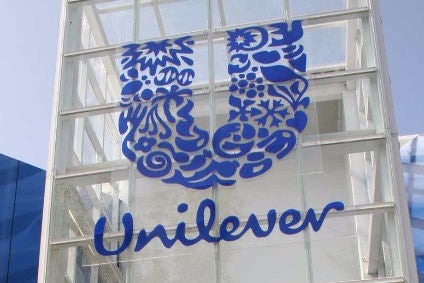
Unilever today (30 November) outlined a new target for operating margin, in part driven by plans to widen the company’s use of zero-based budgeting.
The Knorr to Magnum maker has set a goal for its “core operating margin” to rise between 40 and 80 basis points a year between 2017 and 2019. The new target is up from Unilever’s current goal of annual growth of 20-40 basis points.

Discover B2B Marketing That Performs
Combine business intelligence and editorial excellence to reach engaged professionals across 36 leading media platforms.
Speaking to analysts at Unilever’s Port Sunlight plant and R&D facility in north-west England, CFO Graeme Pitkethly outlined ways in which the company would look to “accelerate” the improvement in its core operating margin, including an extension of the group’s implementation of zero-based budgeting. Unilever had previously said it expected to generate EUR1bn (US$1.06bn) in savings from zero-based budgeting by 2018.
“We will continue to improve the mix of our business with margin-accretive innovation and the focus on margin on the ice cream and home-care category strategies. With the extension to logistics and the roll-out to smaller countries, we expect savings from ZBB and the organisational changes to be greater than EUR1bn by 2019. We expect to be able to take more of our savings to margin, increasing our retention rate, while still investing sufficiently for competitive growth,” Pitkethly said.
The rise of zero-based budgeting in the food industry – a special report
Pitkethly said Unilever’s core operating margin in its 2016 and 2017 financial years would “be in the lower half” of the new target range. “This year and next are years of transition. Restructuring costs will be slightly higher than the normal 100 basis points or so,” he explained.

US Tariffs are shifting - will you react or anticipate?
Don’t let policy changes catch you off guard. Stay proactive with real-time data and expert analysis.
By GlobalDataAsked for the categories or countries that could help Unilever meet its new margin target, Pitkethly said: “Our approach to innovation. Having 75% of our innovation being accretive to gross margin is a very, very large driver of that. Looking around the geographies, whilst we need to invest to remain competitive first and foremost, a lot of the investments over the course of the last three or four years have been focused on North America. Our margin came down in North America as a consequence and we’re now seeing quite a fast recovery of the margin in North America.”
Unilever’s management, meanwhile, also told analysts it is focused on preserving the value of its Flora-to-Becel spreads unit and investing the cash from the under-pressure division into other parts of its operations – but will continue to look at options for the business were sales to remain in decline.





